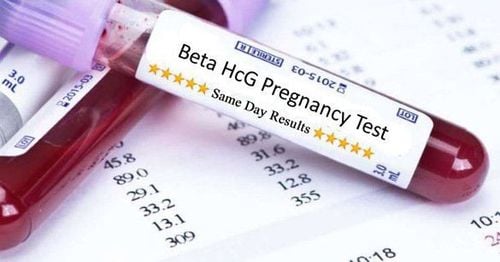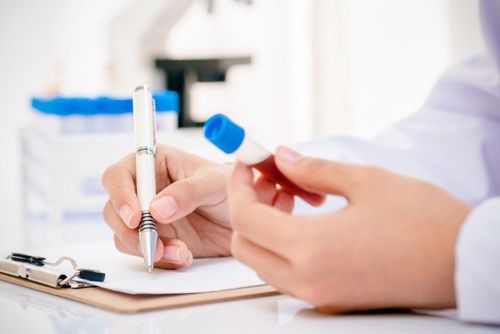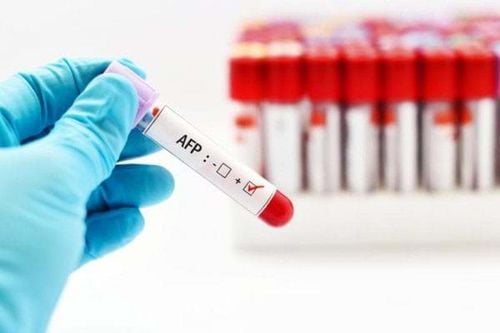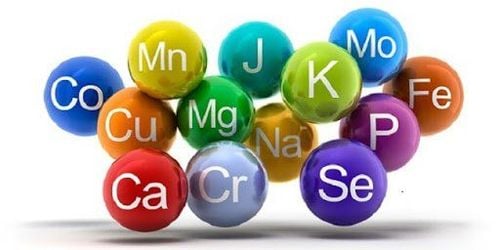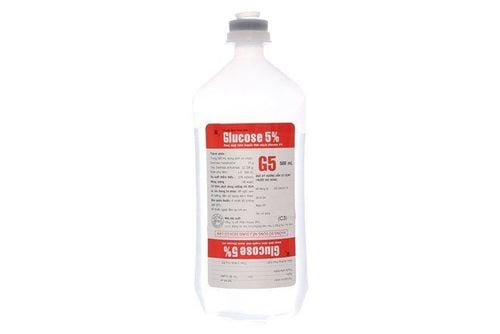This is an automatically translated article.
The article was written by Master, Doctor Do Thi Hoang Ha - Doctor of Biochemistry - Laboratory Department - Vinmec Hai Phong International General HospitalIons, also known as electrolytes (including the main ions Na, K, Cl) play a very important role in the human body, contributing to maintaining voltage across the cell membranes of cells. nerve, heart, and muscle cells, as well as carry electrical impulses from them to other cells.
1. What is an ionogram (electrolyte) test?
Electrolytes are composed of three main ions that play different functional roles:
Sodium (Na): is the main ion of extracellular fluid, plays a fundamental role in regulating water balance and maintaining pressure blood permeation. The stability of blood sodium concentration is a fundamental factor in maintaining homeostasis in the body. Sodium is absorbed through the daily diet and excess sodium will be eliminated mainly through urine and a small amount through sweat. Potassium (K): This is the main ion responsible for acid-base balance, regulation of cell osmotic pressure and plays an important role in nerve conduction and muscle contraction. Potassium is eliminated mainly through the urine. Chlorine (Cl): is the main ion of the extracellular fluid, has the function of participating in maintaining charge neutrality, is a component of the cell buffer system, supports the digestive process and participates in maintenance. osmotic pressure and water balance in the body. When the body is healthy, the two sides of the cell membrane always have a balance of charge, helping the chemical exchange, muscle activity and many other life processes of the body to take place normally. When the body appears abnormal in the concentration of electrolytes in the body, it can lead to electrolyte imbalance, leading to homeostasis, acid-base imbalance as well as qualitative balance. fluid, disrupting the activity of nerve cells, heart muscle cells and many other body functions.
2. What is the blood ionization test for?
An ionogram (electrolyte) test measures the concentration of these electrolyte ions in the body. The determination of the concentration of electrolyte ions plays an important role in determining the treatment direction as well as monitoring the diagnosis of certain diseases (high blood pressure, heart failure, kidney failure ..). Depending on the patient's condition and symptoms, ionography is used in combination with other tests as part of routine testing or alone.
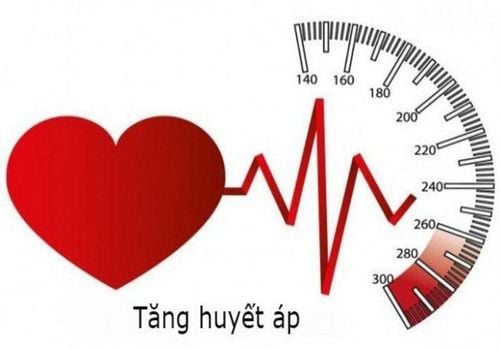
When the patient increases the concentration of blood chlorine (hyperchloremia) will appear symptoms such as: muscle weakness, rapid deep breathing, lethargy, fatigue, more severe can lead to coma. In patients with decreased blood chloride concentration (hypochloremia), there may be increased muscle tone, tetany contractions, and shallow breathing.
In patients with hyperkalemia will present with muscle weakness, malaise, nausea and diarrhea. In contrast, patients with low blood potassium will show confusion, loss of appetite, drop in blood pressure as well as decreased reflexes.
Hyponatremia will cause clinical symptoms in patients such as fatigue, oliguria, tachycardia, headache, muscle tremors, even convulsions and coma. When the concentration of sodium in the blood is increased, the patient will have fever, thirst, fatigue, and dry membranes due to dehydration in the cells, usually due to an imbalance between the amount of water taken into the body and the amount of water excreted from the body. , accompanied by increased osmotic pressure.
3. What do blood ionization test results say?
Normally, the concentration of electrolytes in the body is always within a constant range.
Normal blood sodium levels are in the range of 135 - 145 mmol/l.
Hypernatremia is common when the patient is dehydrated or receiving too much saline, diseases such as hypercortisolism, primary hyperaldosteronism, coma due to increased osmotic pressure. Hyponatremia is common in patients with excessive sodium loss such as diarrhea, vomiting, burns, and an overdose of diuretics. When the blood is diluted by a lot of fluids that do not contain electrolytes or heart failure, cirrhosis of the liver, kidney failure, nephrotic syndrome also reduces sodium in the blood. Normal blood Kai concentration is in the range of 3.5 - 5.0 mmol/l.
Hyperkalemia often occurs in patients with severe renal failure, patients with hemolytic states, patients with sickle cell anemia, metabolic acidosis. Hypokalemia occurs in patients with gastrointestinal potassium loss such as: vomiting, diarrhea, pyloric stenosis, extensive burns, diseases such as Cushing's syndrome due to corticosteroid overdose, hyperaldosteronism, interstitial kidney disease or salicylate poisoning..
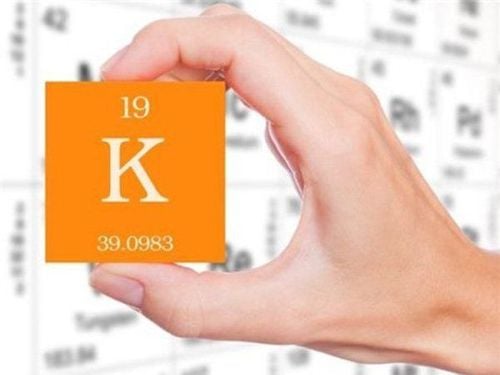
Normal blood chlorine concentration is in the range of 90-110 mmol/l.
Hyperchloremia often occurs in patients with severe renal failure, acute renal failure, Cushing's syndrome, patients with metabolic acidosis. . Hypochloremia is seen in patients with acute infections, adrenal insufficiency, Addison's disease, diarrhea, burns, vomiting, and pyloric stenosis. Currently, quantitative blood ionization testing can be done easily and quickly at the Laboratory Department - Vinmec Hai Phong International General Hospital with a system of modern and advanced machinery, regularly updating new models. by Beckmann, Roche, Abbott, IL. All tests are quality managed according to ISO, of which 87 criteria have been recognized as ISO standards. The doctors have Master, Doctoral, and Professor qualifications, well-trained, specialized from abroad, rich in experience.
Please dial HOTLINE for more information or register for an appointment HERE. Download MyVinmec app to make appointments faster and to manage your bookings easily.






